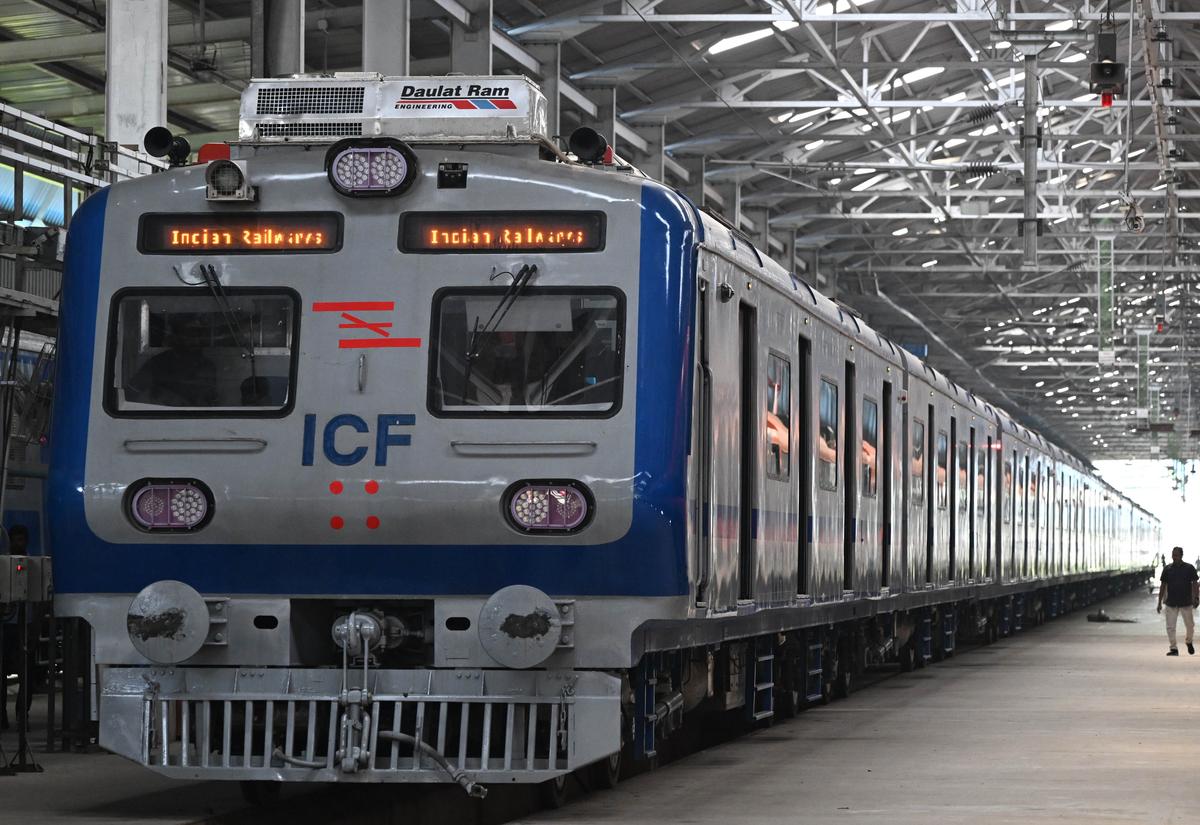Chennai gets its first AC EMU, Southern Railway plans another
Chennai’s railway infrastructure is set for a major upgrade with the introduction of its first air-conditioned Electric Multiple Unit (AC EMU) train. Manufactured by the Integral Coach Factory (ICF), this state-of-the-art suburban train is expected to enter service in March, enhancing comfort and safety for thousands of daily commuters. Southern Railway, acknowledging the growing demand for reliable urban transport, has already requested an additional AC EMU to expand the network. With a capacity to seat 1,116 passengers and accommodate nearly 3,800 standing commuters, this 12-car train is poised to redefine local travel on the Chennai Beach-Chengalpattu route. Equipped with automatic doors, LED displays, a public announcement system, and CCTV surveillance, it marks a significant leap towards safer commuting—especially in light of recent tragic incidents on Chennai’s railway network.
Beyond convenience, the AC EMU introduces cutting-edge technology that aligns with global transport trends. One of its key features is the Electro-Pneumatic Braking System, which combines electrical and pneumatic mechanisms for enhanced efficiency. This system is comparable to the regenerative braking technology used in metro trains, allowing up to 35% energy savings. Additionally, the train’s stainless steel body ensures durability while minimising maintenance costs, making it a long-term investment in Chennai’s urban mobility. Unlike traditional suburban rakes, the new AC EMU also incorporates a passenger talk-back system—similar to metro trains—allowing passengers, particularly women, to alert authorities in case of emergencies. The emphasis on security comes at a crucial time, given recent safety concerns following incidents of violence on local trains.
From an urban development perspective, the introduction of AC EMUs signals a shift towards more sustainable and efficient public transport in Chennai. With rising air pollution and increasing dependence on private vehicles, enhanced suburban rail networks can serve as an effective solution to reduce congestion and carbon emissions. The energy-efficient braking system, coupled with the transition towards modern train designs, contributes to the railway’s sustainability goals. If successfully implemented, this model could pave the way for similar upgrades across Indian Railways’ suburban networks, making daily commuting both eco-friendly and commuter-friendly.
However, the success of this initiative will depend on addressing broader civic concerns such as ticket pricing, frequency, and last-mile connectivity. While the AC EMU brings a much-needed technological boost, ensuring that it remains affordable and accessible to a majority of commuters will be key. Additionally, integrating it with efficient feeder transport, such as buses and auto-rickshaws, is crucial for seamless mobility. As Chennai embraces its first AC EMU, the focus must remain on long-term urban transport planning that balances innovation with inclusivity.




